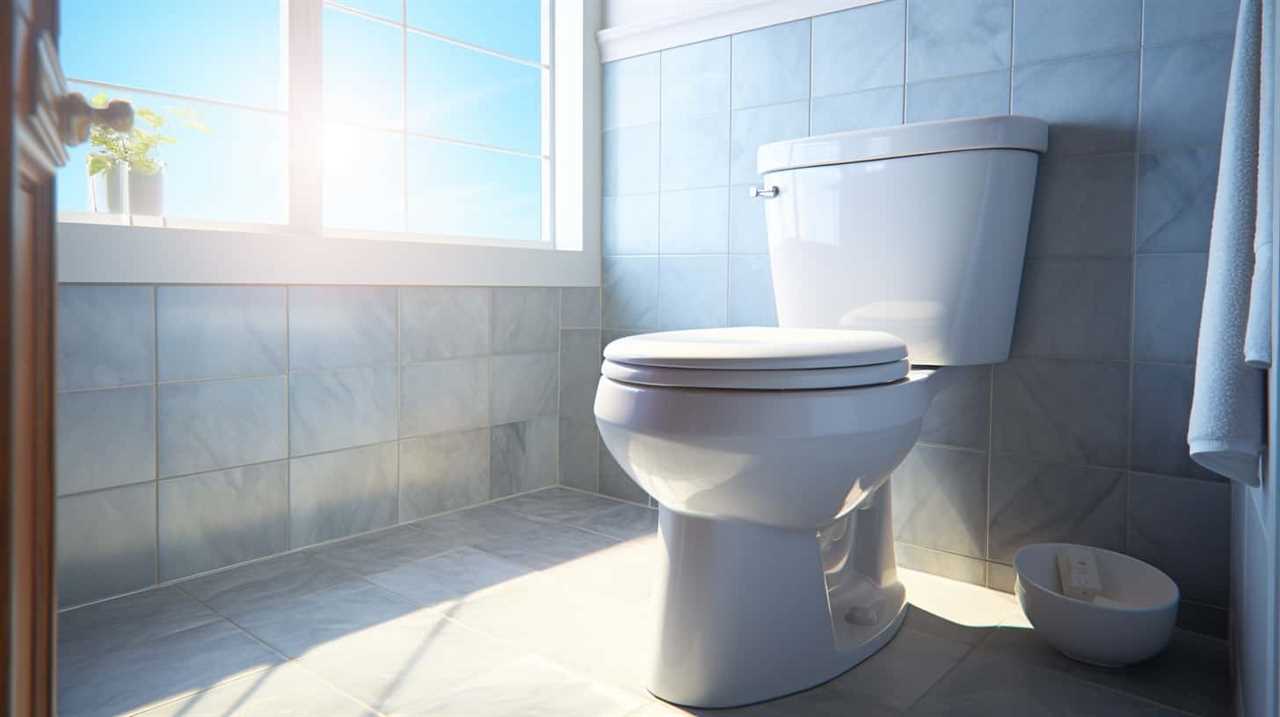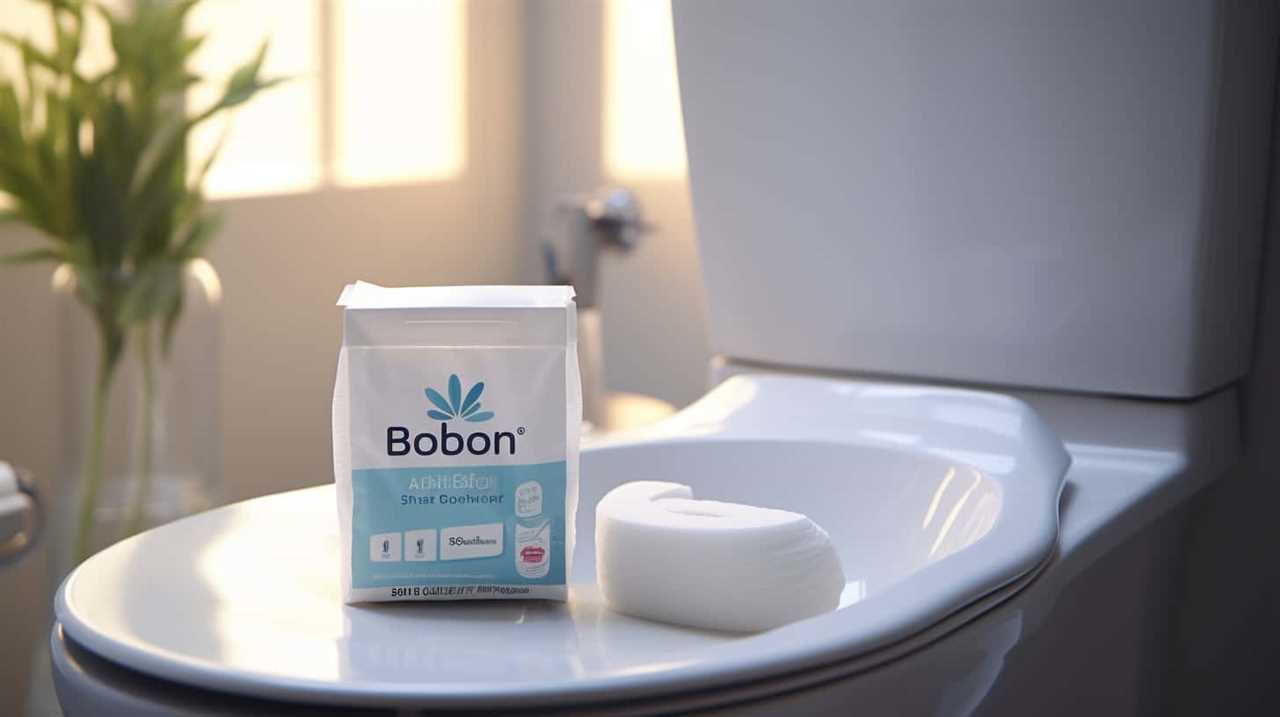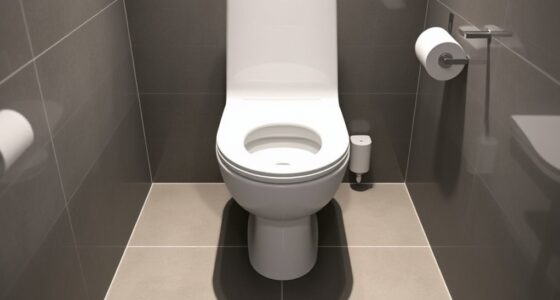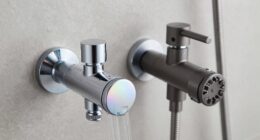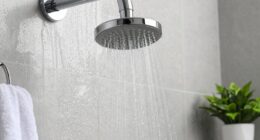As concerned citizens, we often overlook the impact of our daily actions on our homes and the environment. One such action is flushing baby wipes down the toilet. It may seem harmless, but it can lead to disastrous consequences for our plumbing systems and the planet.
In this article, we will delve into the composition of baby wipes, their impact on our plumbing, and the alternatives and proper disposal methods to ensure our mastery in maintaining a clean and sustainable environment.
Key Takeaways
- Flushing baby wipes can cause clogging in pipes and lead to sewage backups and unpleasant odors.
- Non-flushable baby wipes can get stuck in pipes and cause pipe damage, requiring expensive repairs.
- Flushing non-biodegradable baby wipes can lead to environmental pollution and harm aquatic ecosystems.
- Cloth diapers, homemade wipes, and reusable washcloths are sustainable alternatives to disposable wipes.
The Composition of Baby Wipes
Baby wipes are made up of a combination of synthetic fibers, water, cleansing agents, and moisturizing ingredients. These components work together to create a product that’s effective at cleaning and moisturizing the delicate skin of babies.
However, the composition of baby wipes raises sustainability concerns and potential health risks.
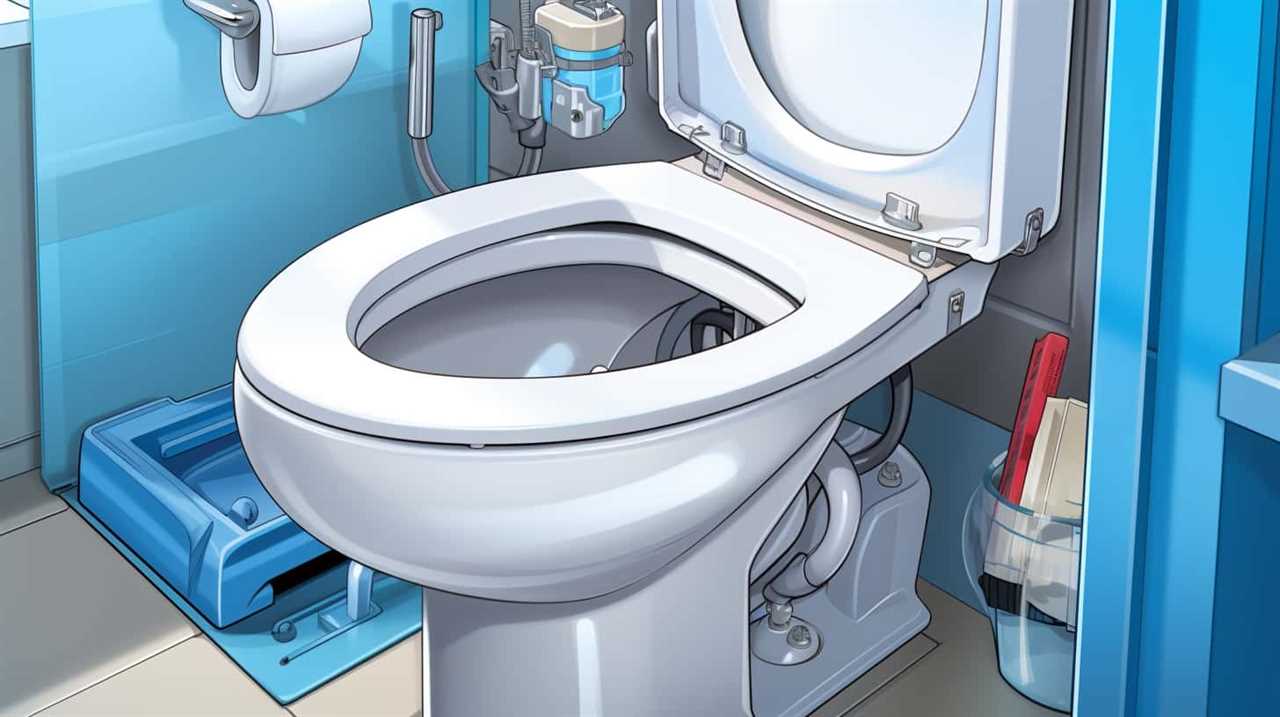
Synthetic fibers, such as polyester or polypropylene, are commonly used in the production of baby wipes. While these fibers are durable and provide a soft texture, they aren’t biodegradable and can contribute to environmental pollution.
Additionally, the cleansing agents and moisturizing ingredients in baby wipes may contain chemicals that can irritate the skin or cause allergic reactions in some individuals.
To address these concerns, some manufacturers have started to produce eco-friendly baby wipes made from biodegradable materials, such as bamboo or plant-based fibers. These wipes are more sustainable and have a reduced impact on the environment.
It’s important for consumers to carefully read the labels and choose baby wipes that prioritize sustainability and minimize potential health risks.
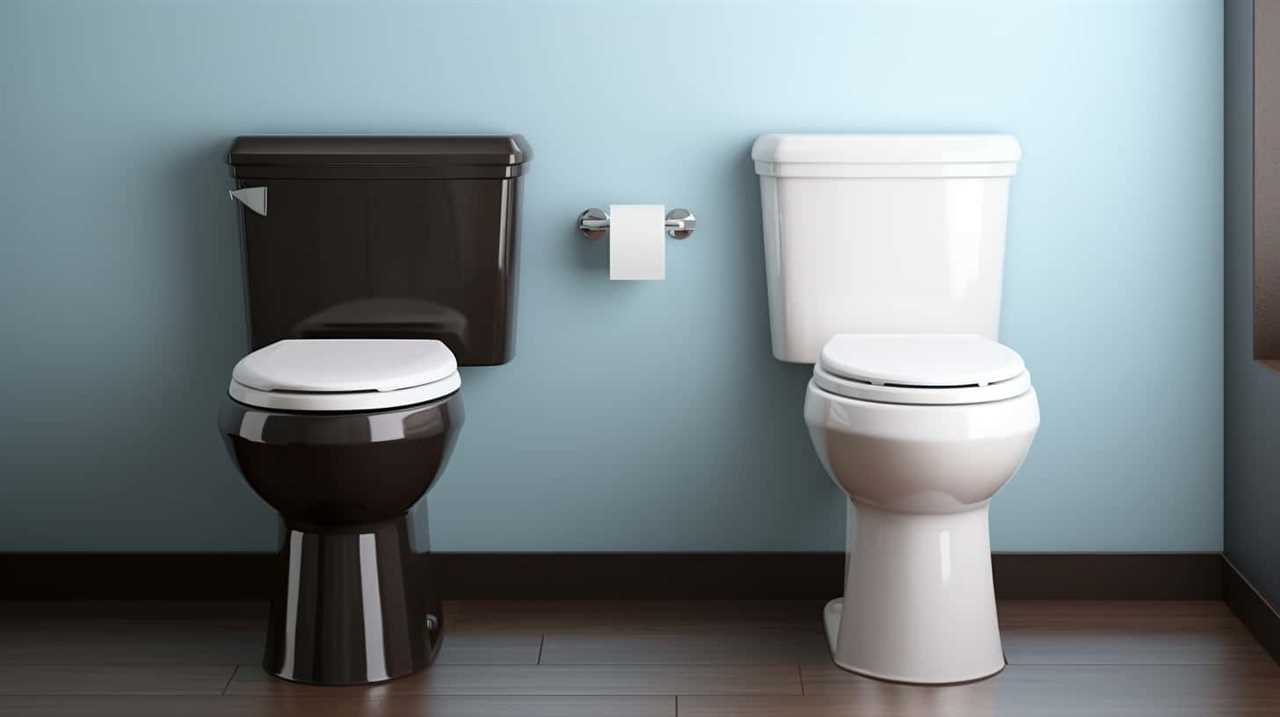
The Impact on Your Plumbing System
When we flush baby wipes down the toilet, they can have a significant impact on our plumbing system. Here are four reasons why this practice can lead to common plumbing issues and costly repairs:
- Clogging: Baby wipes don’t break down easily like toilet paper, causing them to accumulate and create blockages in your pipes.
- Backup: When wipes accumulate in your pipes, they can cause sewage backups, leading to unpleasant odors and potential health hazards.
- Damage to pipes: The non-flushable nature of baby wipes can cause them to get stuck in the pipes, leading to pipe damage and the need for expensive repairs.
- Sewer line blockage: In severe cases, flushing baby wipes can cause blockages in the main sewer line, affecting not only your home but also the entire neighborhood.
To avoid these issues, it’s essential to dispose of baby wipes in the trash rather than flushing them down the toilet.
The Environmental Consequences
The accumulation of non-biodegradable baby wipes in our sewage system poses significant environmental consequences. When baby wipes are flushed down the toilet, they enter the wastewater treatment system, which isn’t designed to handle these materials. As a result, the wipes can clog pipes and pumps, leading to costly repairs and maintenance.
Moreover, these wipes can escape the treatment process and end up in rivers, lakes, and oceans, causing marine pollution. Marine life can mistake these wipes for food, leading to ingestion and entanglement, which can be fatal. Additionally, the chemicals present in the wipes can leach into the water, affecting water quality and harming aquatic ecosystems.

To mitigate these environmental consequences, it’s crucial to dispose of baby wipes properly in the trash and raise awareness about the importance of responsible waste management.
Alternatives to Flushing Baby Wipes
To safely dispose of baby wipes, we can explore alternative methods that don’t involve flushing them down the toilet. Here are four eco-friendly and natural alternatives to consider:
- Cloth Diapers: Consider using cloth diapers as a more environmentally friendly option. They can be washed and reused, reducing waste and minimizing the need for disposable wipes.
- Biodegradable Wipes: Look for biodegradable baby wipes made from natural materials such as bamboo or organic cotton. These wipes break down more easily in landfills, reducing their environmental impact.
- Homemade Wipes: Create your own baby wipes using natural ingredients like water, coconut oil, and a gentle soap. This allows you to control the ingredients and reduce the use of disposable wipes.
- Washcloths or Reusable Wipe Systems: Instead of using disposable wipes, opt for reusable washcloths or wipe systems. These can be easily washed and reused, reducing waste and saving money in the long run.
Tips for Proper Disposal of Baby Wipes
Now let’s delve into how to properly dispose of baby wipes to ensure they don’t cause any plumbing or environmental issues.
Proper diaper disposal is crucial to maintain the functionality of your plumbing system and prevent blockages.
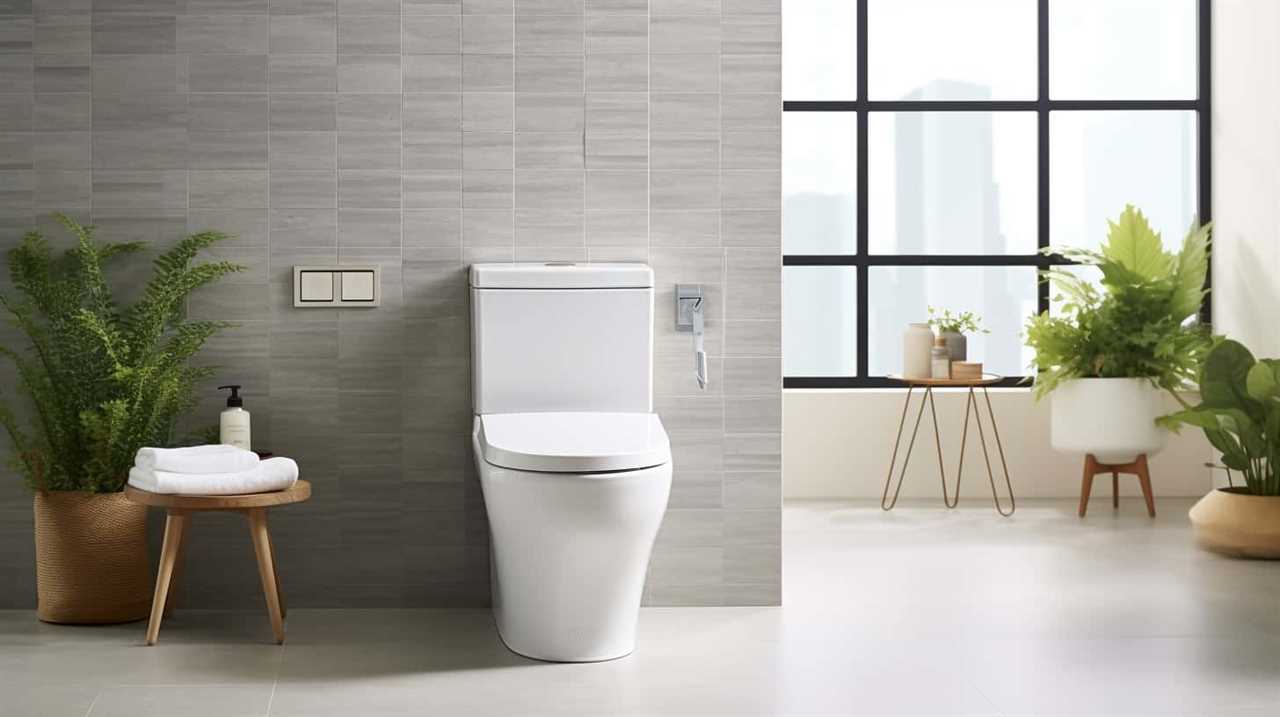
When it comes to baby wipes, it’s important to use biodegradable wipes whenever possible. Biodegradable wipes are designed to break down naturally over time, minimizing their impact on the environment.
To dispose of baby wipes properly, place them in a trash bag or bin specifically designated for non-flushable items. Avoid flushing them down the toilet as they can clog pipes and contribute to sewage backups.
Frequently Asked Questions
How Many Baby Wipes Can Be Safely Flushed Down the Toilet at Once?
We can’t safely flush any number of baby wipes down the toilet. Flushing them can clog pipes and cause costly damage. Additionally, baby wipes don’t break down like toilet paper, harming sewage systems and the environment.
Can Flushing Baby Wipes Down the Toilet Lead to a Sewage Backup in Your Home?
Flushing baby wipes down the toilet can lead to pipe damage over time. Baby wipes are not biodegradable, so they can clog pipes and cause sewage backups in your home.
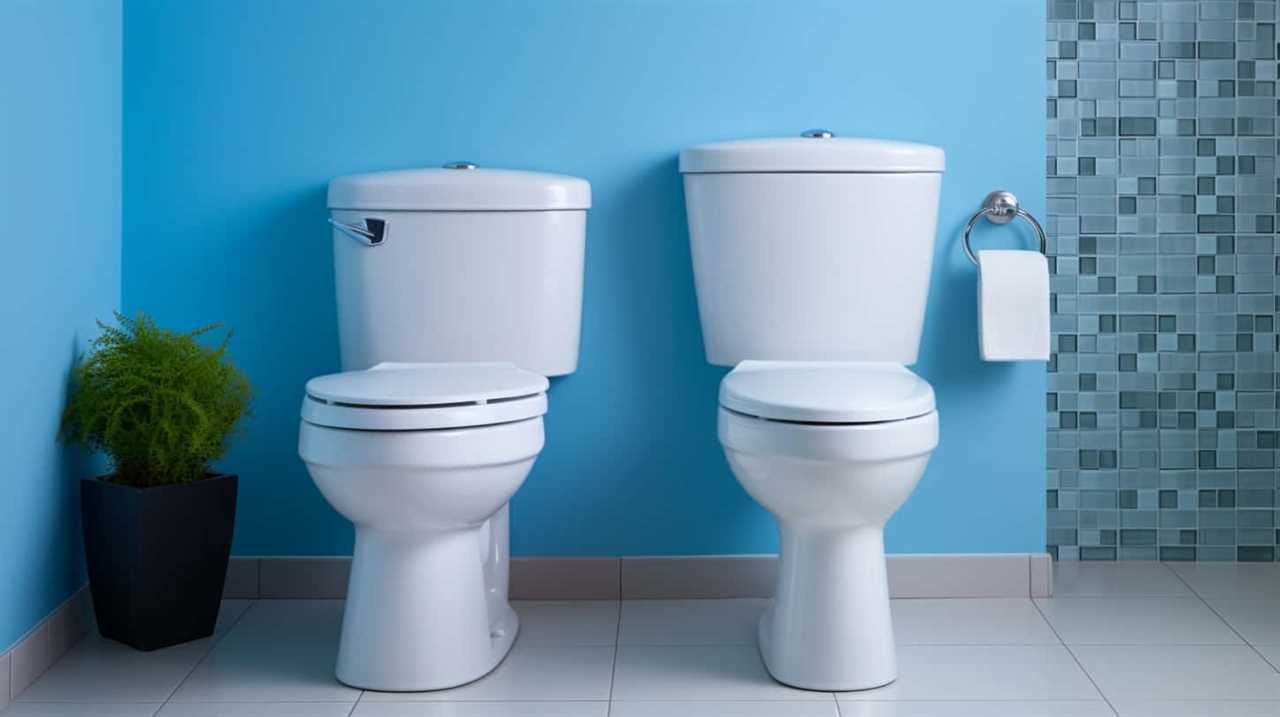
What Are Some Common Signs of a Clogged Sewer Line Caused by Flushing Baby Wipes?
Common signs of sewer line clogs caused by flushing baby wipes include slow draining sinks, gurgling noises, and foul odors. To prevent these clogs, avoid flushing wipes and only dispose of them in the trash.
Are There Any Specific Types or Brands of Baby Wipes That Are Safe to Flush Down the Toilet?
When it comes to flushing baby wipes down the toilet, it’s important to note that not all types or brands are safe. However, there are eco-friendly alternatives to flushable baby wipes that can be used instead.
Is It Safe to Flush Biodegradable Baby Wipes Down the Toilet?
Flushing biodegradable baby wipes down the toilet may seem environmentally friendly, but it can still harm the plumbing system. These wipes can clog pipes and cause blockages, leading to costly repairs. It’s best to dispose of them in the trash.
Conclusion
In conclusion, flushing baby wipes down the toilet is a disastrous idea!
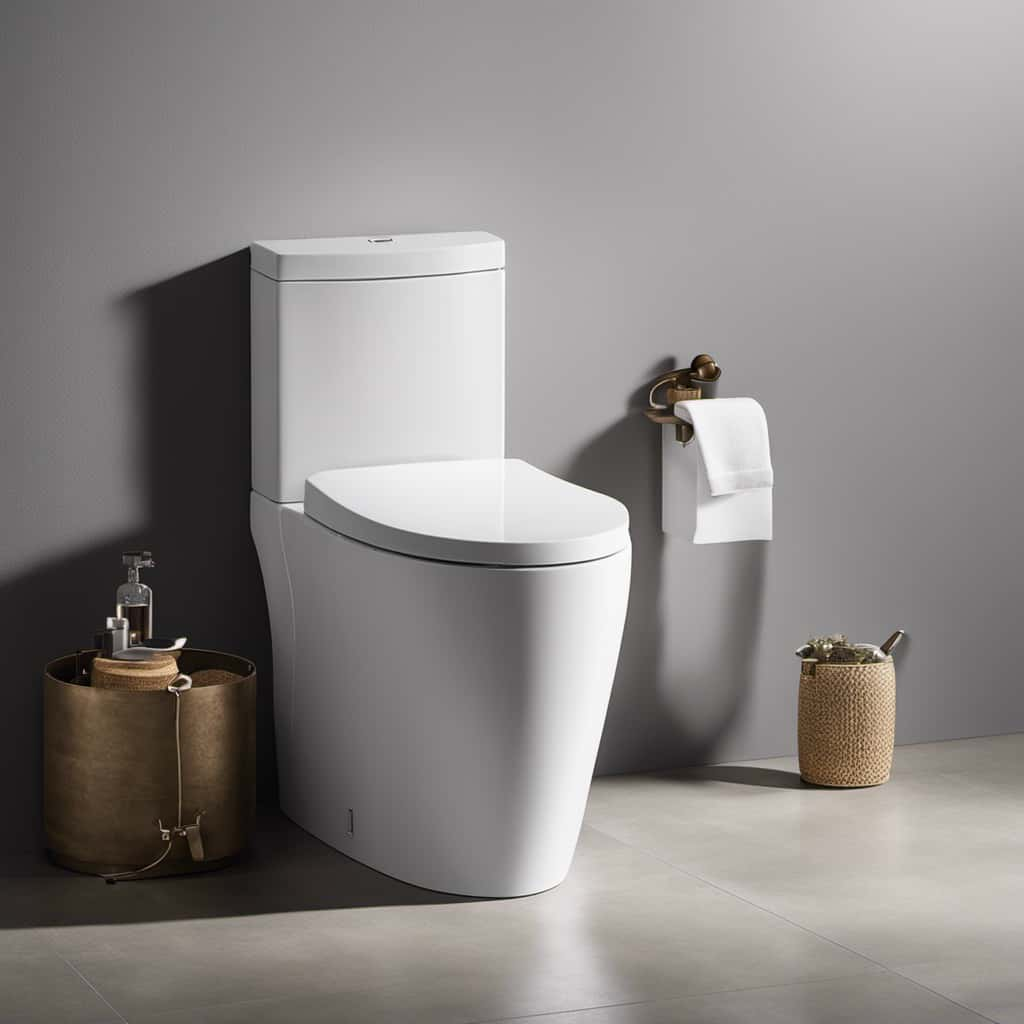
Not only can it clog up your plumbing system faster than a cheetah on steroids, but it also wreaks havoc on the environment.
These seemingly innocent wipes contain materials that aren’t biodegradable, turning our oceans into a wasteland of wipey doom.
So, let’s be responsible and opt for proper disposal methods instead.
Trust me, your plumbing and Mother Earth will thank you!
